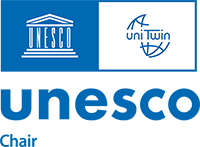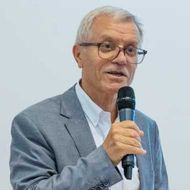- A
- A
- A
- ABC
- ABC
- ABC
- А
- А
- А
- А
- А
-
-
Education
-
Science
11 Myasnitskaya St., Moscow
+7 (495) 621-28-73
issek@hse.ru
Meissner D., Zhou Y., Fischer B. et al.
Technological Forecasting and Social Change. 2022. Vol. 178.
Abdrakhmanova G., Vasilkovsky S., Vishnevskiy K. et al.
M.: National Research University Higher School of Economics, 2022.
Saritas O., Burmaoglu S., Ozdemir D.
Futures. 2022. Vol. 137.
Sokolov A., Shashnov S. A., Kotsemir M. N.
In bk.: BRICS Comprehensive Innovation Competitiveness Report 2020. Scientific and technical documentation press, 2021. P. 36-98.

‘In the Next 20 Years, We Will Stop Aging’
The 25th Yasin (April) International Academic Conference on Economic and Social Development brought together leading Russian and Western scientists. Among the guests was Jose Luis Cordeiro, PhD, international fellow of the World Academy of Art and Science, Chair of the Millennium Project's Venezuela node, former professor at MIPT and HSE University, and author of The Death of Death.
— You took part in a foresight session devoted to the future of AI and you have spent time at HSE before. How has your experience of collaborating with the university been?
— I am always happy to go back to HSE, which many people call the Harvard of Russia. I'm truly convinced it is one of the top universities in Russia, Europe, and the world.
All the research and academics that are being done there are top of the line, so I'm really excited and happy to collaborate in any way.
— Which research areas and topics discussed during the foresight session are the most relevant today?
— What interests me most is considering AI in different fashions, from the artificial narrow intelligence of the past to our current pursuit of artificial general intelligence, then soon probably moving into artificial super intelligence—a level of AI equal and then superior to humans. That is what I think will happen in the future and we need to be ready for it.
— Does AI present more threats or opportunities?
— Every technology can be used for good things or for bad things, beginning with one of the first human technologies—fire. Fire was probably developed by humans about half a million years ago. Obviously, it could be used for many good things like cooking, getting warm, and so on, but it could also be used to kill people, to destroy, burn cities, etc. The same is true of nuclear energy, which can be used to produce electricity or to make weapons. All technologies can be used for good or for bad, but in general, they are used for a good purpose. They are developed by humans, for humans, with humans. So I am actually very excited about the incredible possibilities of AI. I'm less worried about artificial intelligence than I am about human stupidity.

— What role does artificial intelligence play in your vision of the future?
— AI will be everywhere, helping us in every way all the time, continuously. It's like having our cell phones or other technologies like cars, airplanes, internet, computers, trains, etc. Artificial intelligence will be everywhere, just like electricity is everywhere today.
— In your view, what are the main challenges facing humanity today? Have they changed in recent years?
— There have been different challenges in different historical periods. At some point, fire was a big challenge in wars. Millennia later—just recently—it was nuclear weapons, which were a real threat to humanity after World War II. Then it was biochemical weapons, and now environmental considerations are a major worry. So, there are different challenges for humanity. I think artificial intelligence, like all technologies, actually helps more than it causes problems. I am very optimistic and looking forward to seeing how artificial intelligence will help us to solve many of the problems and challenges faced by humanity.
— At the foresight conference, some argued that modern foresight is experiencing a decline in public interest due to being old-fashioned. Do you agree?
— I think foresight and future studies are very relevant and are only becoming more relevant as things move faster and faster. When things didn't change or moved very slowly, then foresight was not really important. But now that things are moving increasingly faster, we need more, not less, foresight. So I don't think it is old-fashioned. In fact, I think it is ‘new-fashioned’ and will become even more common in the future. It's like saying that mathematics is old-fashioned or physics is old-fashioned, and they are not. We need mathematics, we need physics, we need foresight—and we need it more than ever.
— You were one of the pioneers of the Millennium Project, which brings together futurists from around the world. Do you see any areas of potential collaboration with the HSE Foresight Centre?
— HSE, the Foresight Centre, and ISSEK are doing incredible foresight work, so there are many such areas. I love iFORA, for example. It is something we could collaborate on, to help use it, market it, promote it internationally. That is just one example.
We at the Millennium Project have also been working on developing State of the Future Indexes. We do indexes about the future of companies, cities, countries, sectors, industry sectors, and the world in general. HSE is also very good in statistics, so we could also collaborate on State of the Future Indexes. We work on research methodologies, compiling what is called the Futures Research Methodologies. HSE could be a great contributor in that.
Additionally, we normally do yearly international Delphi surveys, real-time Delphi surveys. And of course, we would like to get more and better participation from Russia as one of the leading nations in the world. So, there are many, many things. The future is open and foresight and future studies are the future.

— What is the current focus of your research?
— I'm interested in three main areas. One is space. Space is really part of the future of humanity. And in the next decade, we are going to have space colonies on the moon and on Mars. This will radically change how we see our tiny planet Earth. So space is very important. And of course, Russia has been one of the leading nations on space research.
Another area I'm interested in is obviously artificial intelligence and the move from artificial narrow intelligence to artificial general intelligence and then, eventually, to artificial super intelligence. This will radically change everything once we become much more intelligent and create a new machine–human civilisation. And for that we need lots of intelligence—both natural and artificial.
The third area of interest for me is biotechnology, health, and longevity. With new therapies, we are able to increase the lifespan of people and soon we will be able to rejuvenate people. This is incredible. Shinya Yamanaka, the winner of the 2012 Nobel Prize for Medicine, discovered that we can reprogramme cells and change their biological age. Other scientists have done this at the organ level, and now many people are working from organs to whole organisms. Beginning with simpler and smaller animals, they are moving up to more complex and bigger animals so that eventually we can apply this in humans. I do believe that in the next 20 years, we will have stopped aging. We will have controlled the aging process and we will be even better at rejuvenating people who want it. Immortality is the first dream of humanity, and now we are very close to making it happen thanks to biotechnology. I'm really excited about that.
Interview by Sergey Sychev, Leading Expert of the Department for Statistics of Science, Institute for Statistical Studies and Economics of Knowledge
- About
- About
- Key Figures & Facts
- Sustainability at HSE University
- Faculties & Departments
- International Partnerships
- Faculty & Staff
- HSE Buildings
- HSE University for Persons with Disabilities
- Public Enquiries
- Studies
- Admissions
- Programme Catalogue
- Undergraduate
- Graduate
- Exchange Programmes
- Summer Schools
- Semester in Moscow
- Business Internship
- © HSE University 1993–2025 Contacts Copyright Privacy Policy Site Map
- Edit

